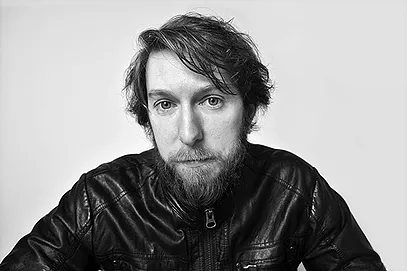ASK & DISCUSS
INDEXUse of a Political Speech
5 years, 5 months ago - Adrian Williams
Hello fellow Shooters,
I wanted to ask if anyone has ever used audio clips of speeches made by politicians before, and what experience they had in obtaining rights.
I'd like to use some of a speech (audio only) from Vice President Spiro Agnew from 1969. I've found recordings available to download from www.archive.org - which includes many pieces of film and audio that are 'in the public domain'.
But I wonder if anyone has any experience of using old recordings of speeches and whether clearance is needed, for material such as this. Obviously someone made a recording, but I can't for the life of me find out who made it or owns it, or if it is now copyright free.
Any advice greatly received!
Thanks
Only members can post or respond to topics. LOGIN
Not a member of SP? JOIN or FIND OUT MORE
5 years, 5 months ago - Siobhan Fahey
I'm watching for this answer. We crucially need Margaret Thatchers homophobic speech for our film
5 years, 5 months ago - John Lubran
The defining term in the 'Public Domain' means free from copyright. Make sure that the people who declare something to be in the public domain know what they are talking about. There's also 'fair use', as in quoting from any source whether transcribed words, replaying recorded material, of pretty much any source or medium within a factual presentation of news or documentary. One is still liable to claim if one over exploits material that would otherwise not be in the public domain, or if one misrepresents, libles or slanders persons or entities. That's the general picture so be careful.
5 years, 5 months ago - Paddy Robinson-Griffin
It's a far bigger question than it may appear on the surface. There is copyright still held in the words of the speech. There is copyright in the recording of the speech. There may be dispensations because one or both was put into the public domain due to the context (eg in court/parliament), and that will all vary country by country of course. I would suggest asking an actual lawyer or clearing service who you give a bit of money for a clearances opinion for the actual clip and context. Getting it wrong is potentially a far bigger deal than getting clearance. For instance you may struggle to get E&O if you cannot show that you cleared the clip.
The fact that the clip was on archive.org isn't in itself any guarantee, I've seen some very much in copyright material hosted there, misdescribed. However, properly uploaded public domain material should have some kind of context as to why it is
5 years, 5 months ago - Adrian Williams
Many thanks both, I agree it would be best to source clearance, it just seems hard to find out who, if anyone, owns the recording. As it was a political speech, I'v read that, in the USA at least, speeches made by the Govt (in this case, he was Vice-Pres) are copyright free, but I believe this relates to the actual words, not any recordings (unless they are official govt. recordings) made of the speech.
Definitely agree about Archive.org, not very reliable as to whether things are available to use with Creative Commons etc.
I'll keep researching to see if I can find who owns this particular recording,
Thanks for you comments, I wonder if anyone else has ever had experience of something similar?
5 years, 5 months ago - John Lubran
Yes, absolutely what Paddy says. I'd only add to that, that lawyers tend to be risk averse, as do most broadcasters, and from a business point of view that may be more important than what the actual law is. Nevertheless fair use can and does trump a lot of presumption. Knowing exactly what the limits and boundaries of fair use are is paramount. Examples of fair use are not at all uncommon on broadcast TV. It's significantly a context thing.
Similar grey areas arise with what is in the public domain. Sometimes, and I'd venture that to be quite often, originators don't realise that they've put something into the public domain by default. Once a property has entered the public domain, it's there forever. Pick ones lawyers wisely and avoid challenges one doesn't know how to fight. Litigation is only fun when you win and get the money.



